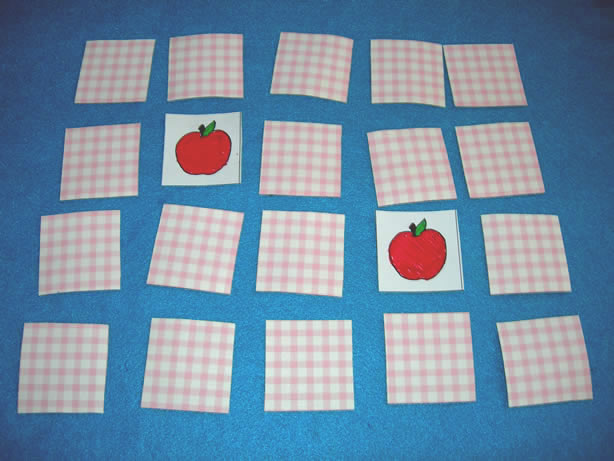"Are there any games that manage to educate while being very fun?
I was wondering about how abstract you could be with a subject and still have it apply to the real world. For instance, if you had an FPS where enemies are weak to certain things, like a monster who is weak to gold, and you had a weapon that you had to input the number of protons, electrons and neutrons your gun chamber contained to change to a certain fire mode, so you could fire gold pellets, would this be too abstract to teach anything? Would it be too annoying and ruin the games tempo?"
With that specific example, yeah it would DEFINITLY ruin the game's tempo, since it's an FPS and all. FPS's are quick, fast-paced, and devoted to making the character feel like a bad-ass (not always the case on that bad-ass part but it's a general thing). However, under the proper circumstances, it doesn't mean there can't be a situation where you can't divulge some knowledge.
Take in for example, an FPS where you meet a character boss that wears gold armor like a self-righteous knight or rich ass-hole. When you shoot/stab/attack him, his armor would be easy to break through. When the boss is defeated or when his armor comes off, and he asks how this is possible, the protagonist could simply respond: "Gold is soft, dumbass." Then proceed in interacting/finish/whatever the developer has made possible for the protagonist to do for the boss.
See? This is a good example of how a game could be used to educate without sacrificing gameplay. This is an example of a subtle, yet memorable moment. It could easily have been unveiled through a conversation between two characters or a pratagonist and an ally. Of course, there are more simple ways....
"Simple actions you do in the game that would hopefully be committed to memory after a while. Instead of committing to memory that pumpman is weak against the whirlwind cutter, could you instead remember that some kind of fungus is weak to some kind of medicine?
Is this too abstract to help with education at all, too stupid, etc?"
You could, but in case you haven't noticed, fungus names and medicines are pretty long, and that sorta thing is sorta hard to commit to memory if you have different fungus' and different medicines at your disposal.
However, if you were doing, say an RPG that took place in the present (like Earthbound, I guess), and had a protagonist that was afflicted with various illnesses, that protagonist could go in his inventory and sort through various medications that could treat his illness. Whenever he had a medicine highlighted, there would be a description below that could say which status effect (illness) it could treat.
Games are best for tangetial learning. Tangential learning is best when it references knowledge. For example, take my gold armour example above. A simple google search for "is gold soft?" or "why is gold soft?" brought on because of that moment in the game allows the player to educate themselves rather then have information rammed down their throughts in a completely uninteresting, academic way.
The magic of games is that they make genuinely interested in the subjects that are part of games. Introducing the information "gold as soft" with the aforementioned boss fight or in a conversation with an ally are far more engaging ways to make the player interested in whether or not "gold is soft" rather then someone standing up and telling the player in front of a class: "Gold is the chemical with the atomic number 79, representied by Au and has the properties of blah,blah,blah,blah,blah."
Games makes knowledge engaging, and when knowledge is engaging, players can just dive into knowledge themselves.
For example, when I was young, I played a lot of FPS shooters, which at that time, were mostly based in the settings of WWII. In the sixth grade, I knew what a M1 Garand, BAR(Browning Automatic Rifle), and an MP40 was. I also knew why WWII was started, who Hitler and who the nazi's were and when Remembrance day(Canadian veterans day for WWII) came along, I was the only one in my class who know what the Normandy Landings were (D-Day) because they were (mostly) the first mission to every WWII shooter game.
When Call of Duty: World at War came along, I found out that Russia was involved in the conflict (it was the year before I would get history classes in school) when they were first invaded and then pushed back to regain their land (with millions dead for the russians because I found out they were so disorganized, not through games but through research. Also found out that when Napolean invaded Russia, the Russians burned the crops so whatever of France's troops left alive from the tough winters would starve out. Those russians are tough.)
However, if the game takes place in a fictional environment, you could always merely reference the information. for example, Sephiroth in Final Fantasy 7. Sephiroth is also the name of the ten atributes of God in the Jewish Kabbalah. If even a small fraction of Final Fantasy players google Sephiroth and stumble onto the information, Square Enix would have facilitated the learning of thousands of people.
Of course, it often gets difficult to determine what is a reference and what's just made up video game gobblty goop. One could either make the game chock full of references, a time consuming process. One could just add references and video game gobity goop and hope the player could find sort out what's a reference and what isn't. Something I like a lot is when videogames have an ingame wiki. I've seen examples of an in-game wiki in Mass Effect 2 whenever you interect with objects, and in Assasins Creed Brotherhood which updates with information on ladmarks and the real life Borgias.
The point is, you must present knowledge and let the player come towards it. Although you're in a step towards the right direction, it seems you still want to sacrifice gameplay and the flow of play for the sake of cramming knowledge in a player's throat.
I think learning from games is a lot like eating a sandwich. You gotta eat it yourself, at your own pace, and you'd be no matter displeased if someone was ramming a sandwich down your throat saying that it's good for you.
Phew. Oh, and Assasins Creed. If you've ever played that game and run around in any city, you'll come across the heralds and when they don't have information pertaining to an assasination, you can always hear them shouting about how a war can be holy and how they mention the name "Salahaddin" (which comes to Saladin for westerners) The Sultan (leader if you will) that fought back against the holy crusades of the church. Bam, google, info, and done.
Also wanted to say why they haven't made a game about Joan of Arc. That shit would be historically accurate and awesome.










